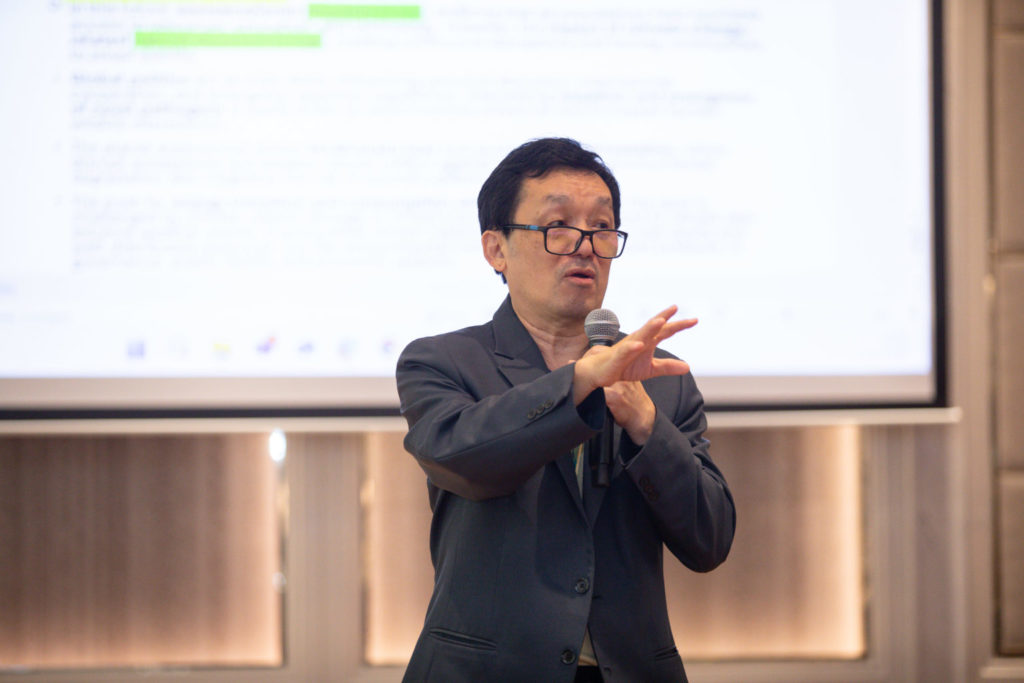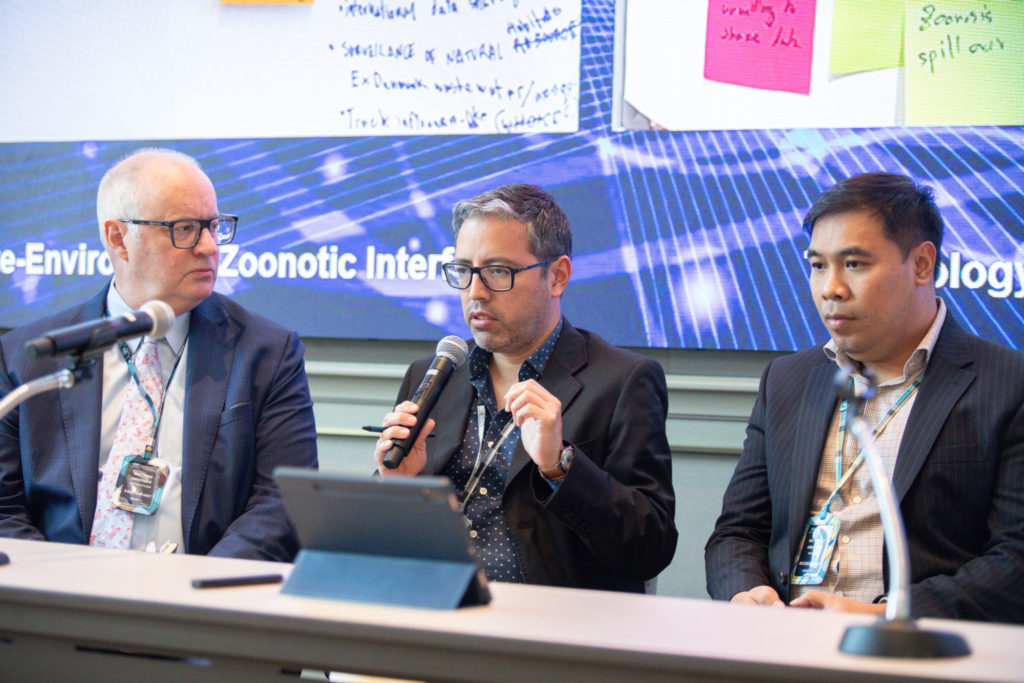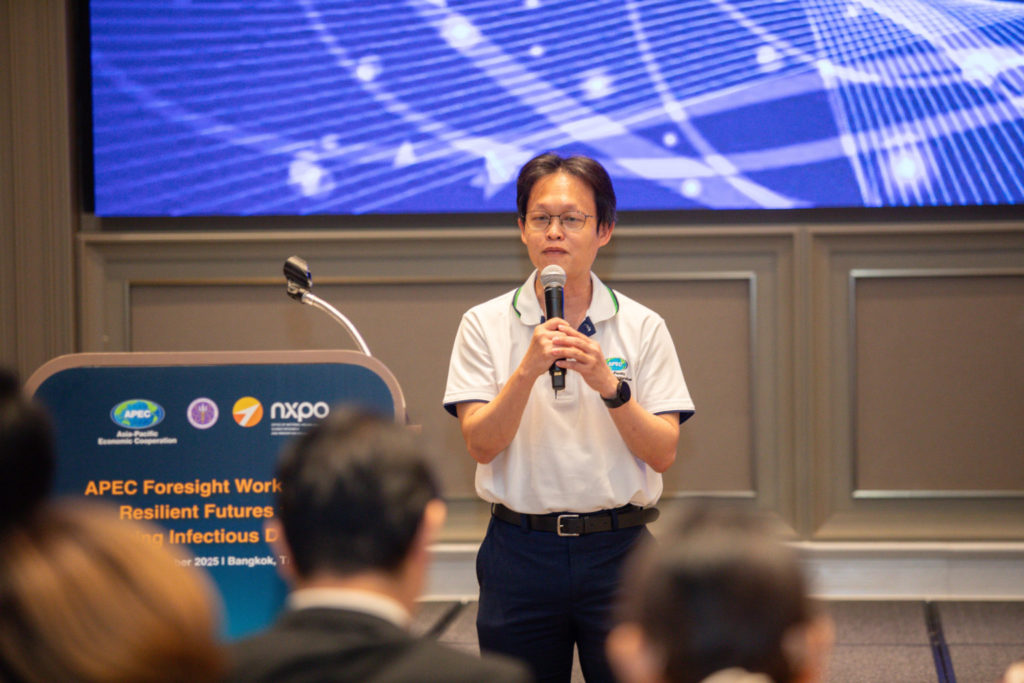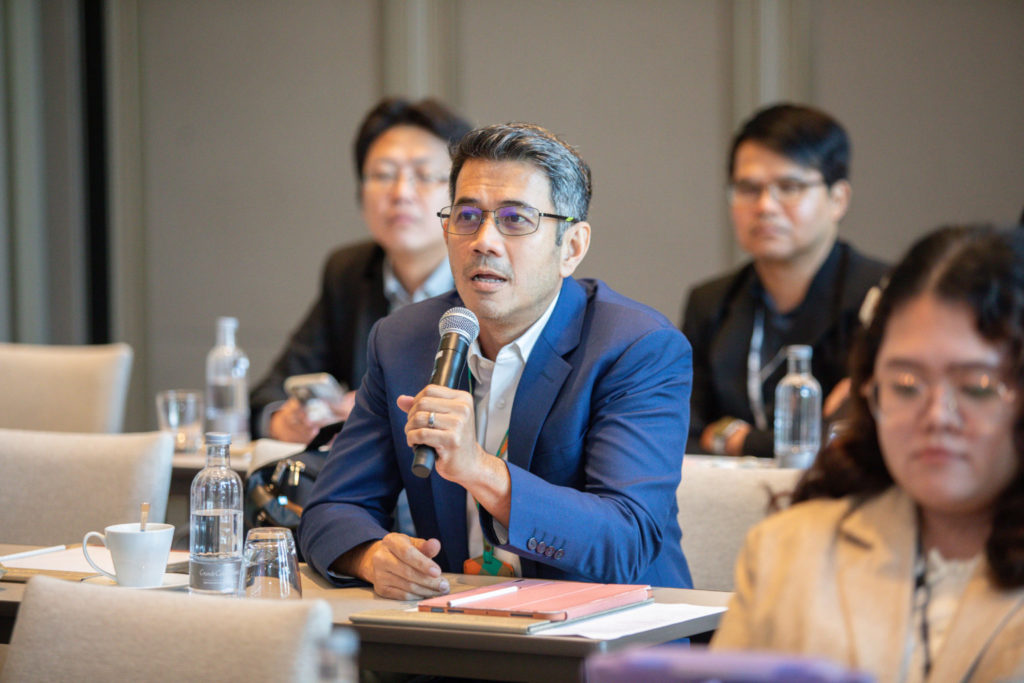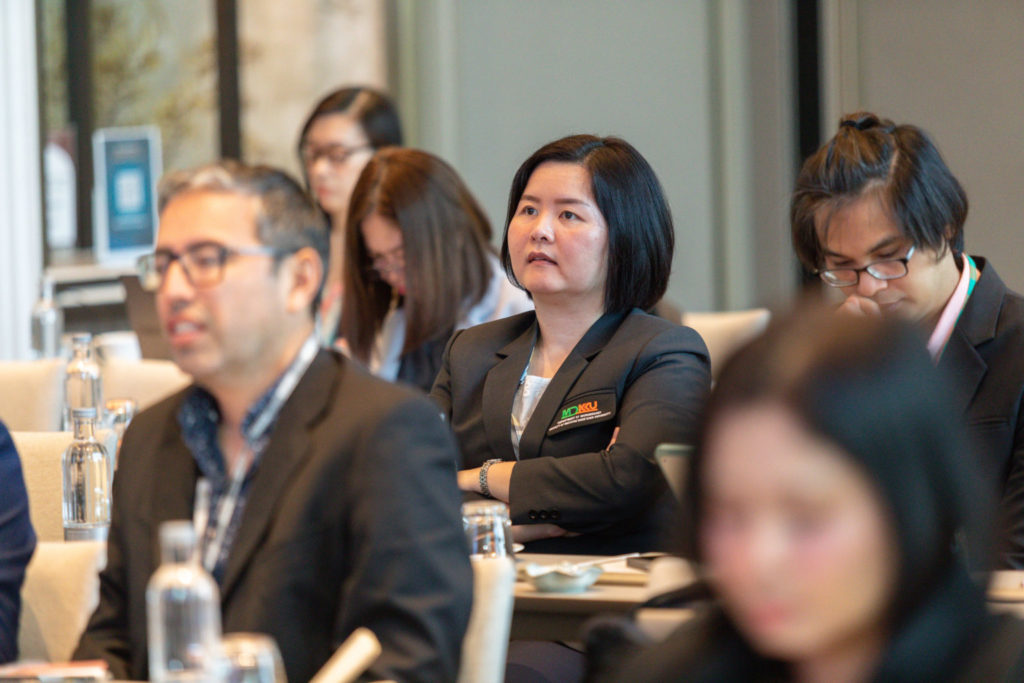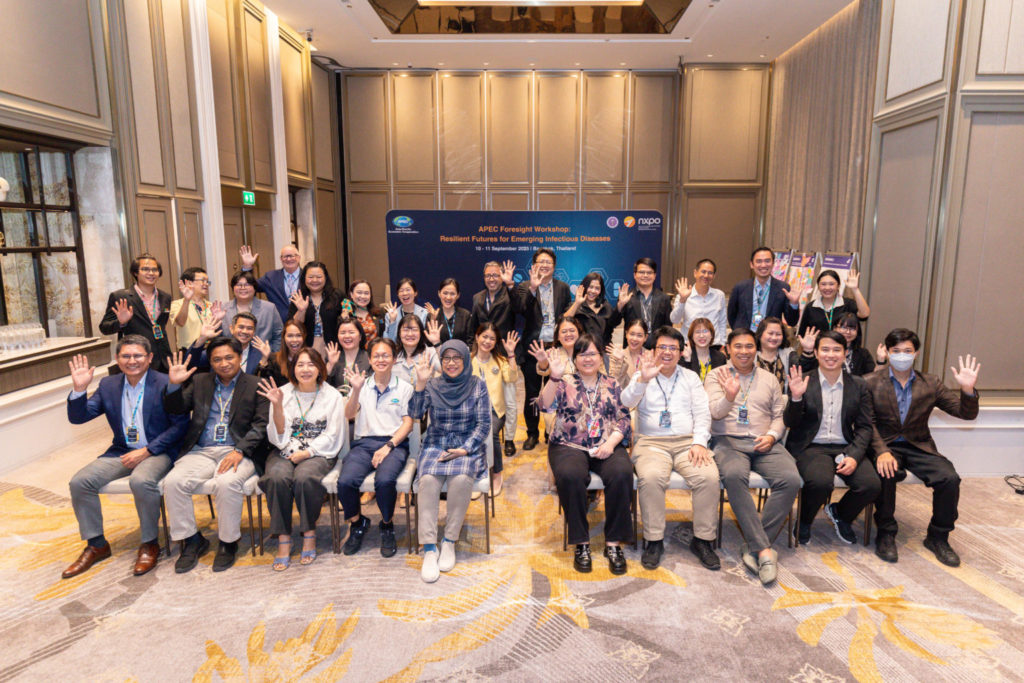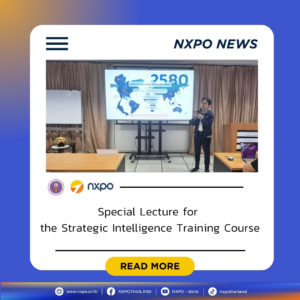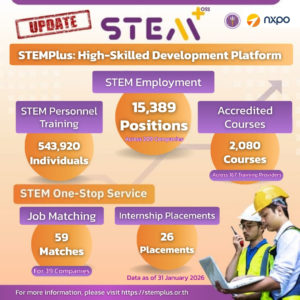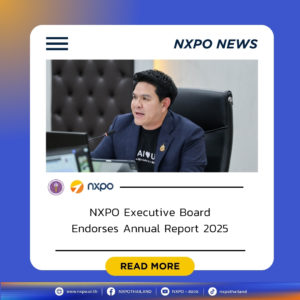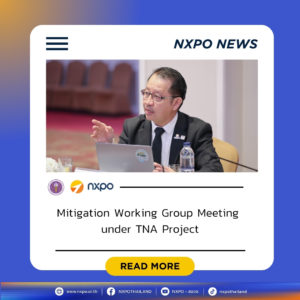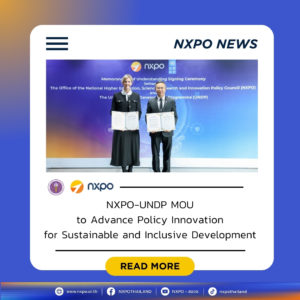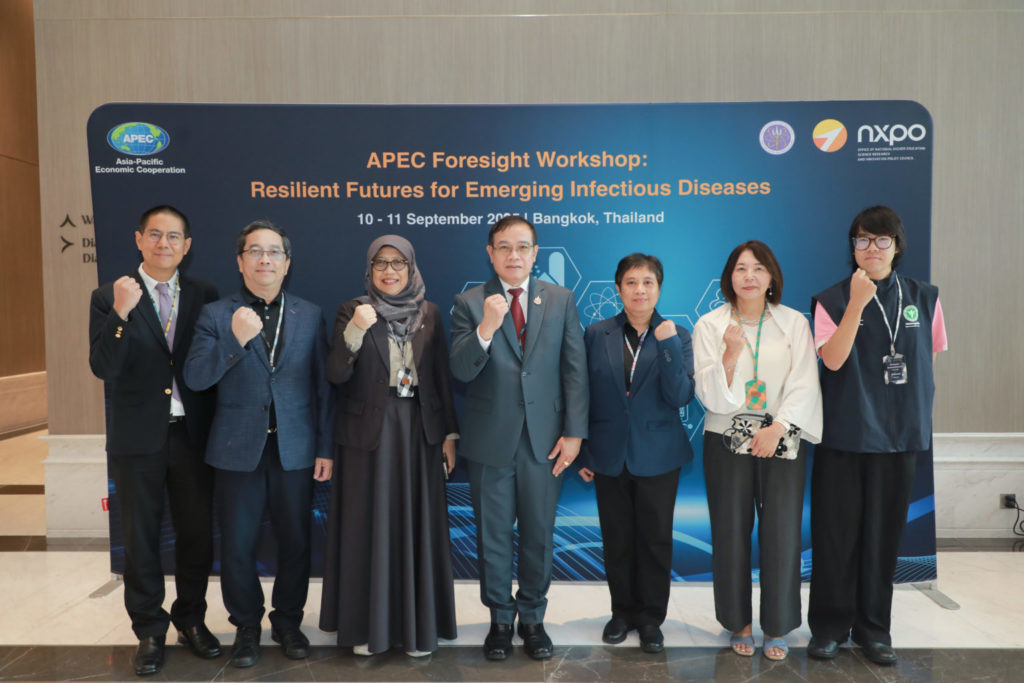
NXPO and the APEC Center for Technology Foresight (APEC CTF) organized APEC Foresight Workshop: Resilient Futures for Emerging Infectious Diseases on 10–11 September 2025 at Grande Centre Point Lumphini in Bangkok. The workshop was part of the Comparative Analysis and Foresight of Emerging Infectious Diseases Project (PPSTI 206 2024A) funded by APEC, drawing over 50 participants from member economies including Indonesia, Peru, the United States, Japan, and Thailand.

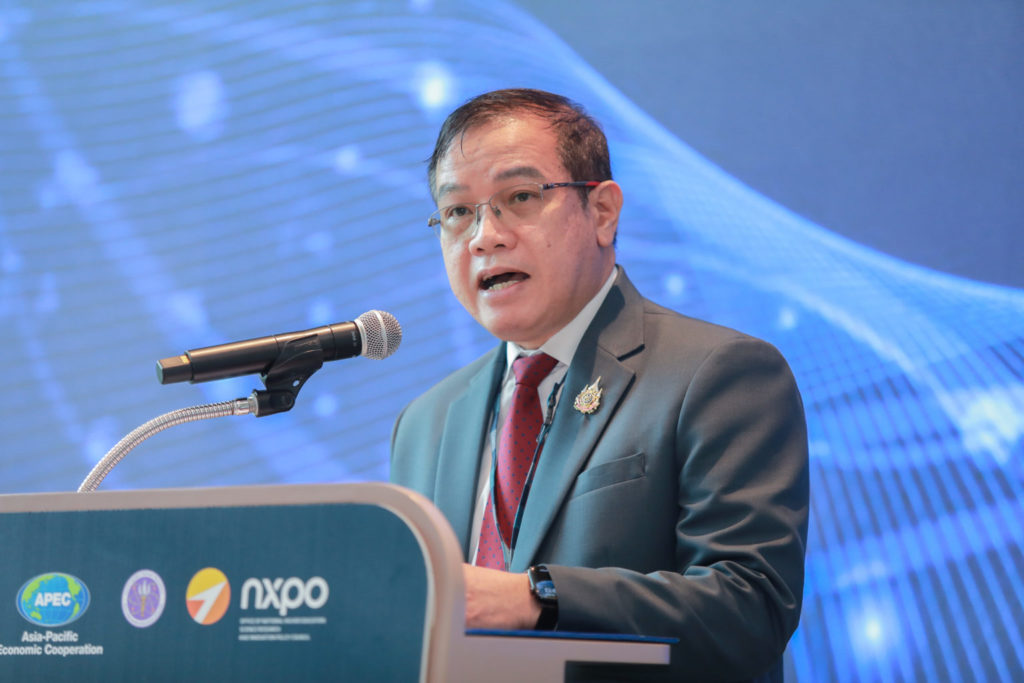
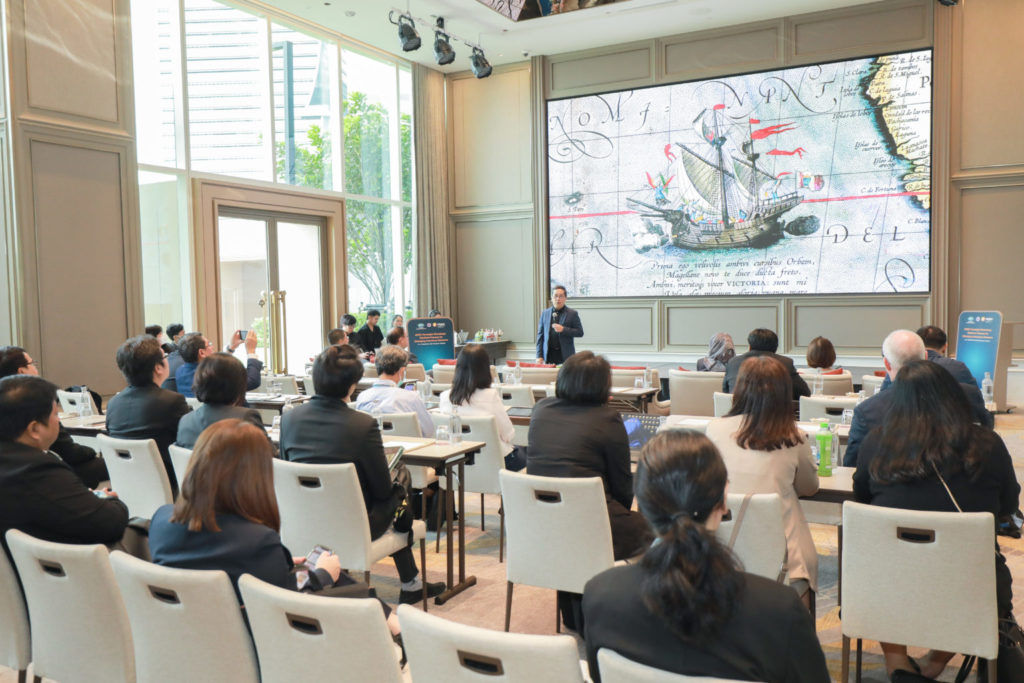
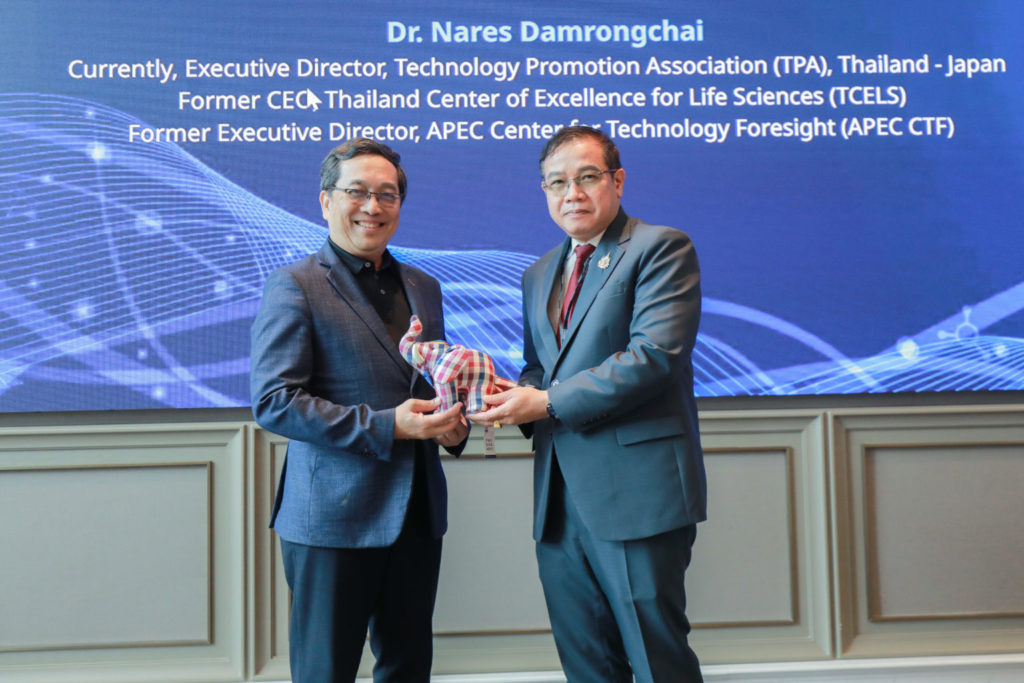

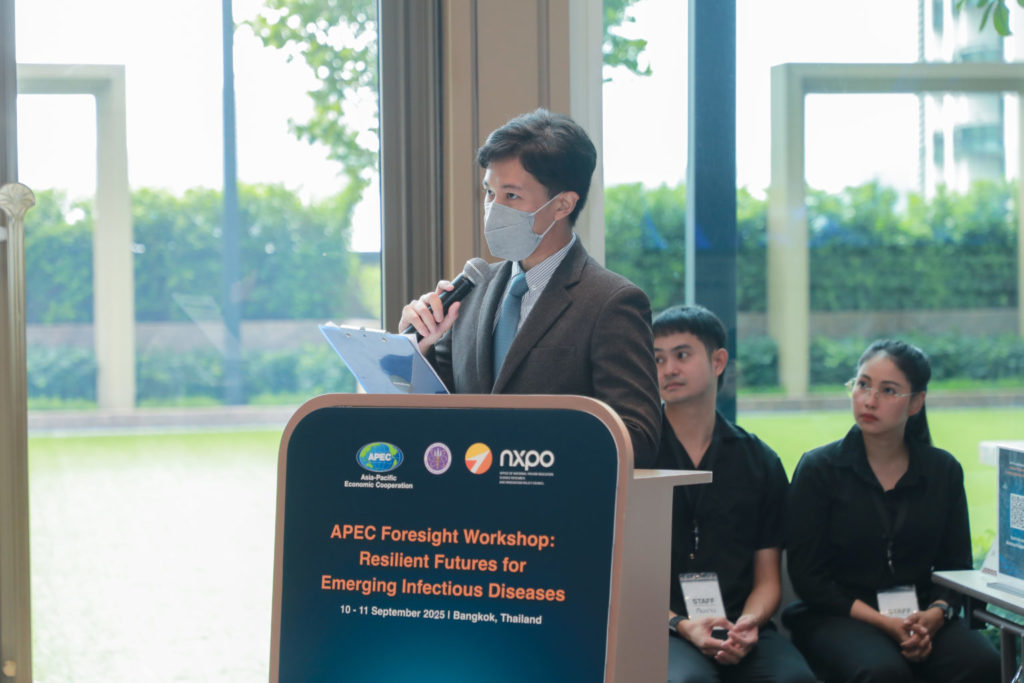
Dr. Surachai Sathitkunarat, President of NXPO and Executive Director of APEC CTF, welcomed participants and introduced the Center, established in 1998 as the world’s first regional foresight center. He highlighted the 2008 APEC publication “Roadmapping Converging Technologies to Combat Emerging Infectious Diseases,” the region’s first roadmap on emerging diseases. Dr. Surachai emphasized that preparedness requires not only science and technology, but also foresight, collaboration, and collective action to address uncertainties posed by climate change, zoonotic diseases, international travel, and disruptive technologies.
The workshop was officially opened by Assoc. Prof. Apisak Dhiravisit, Vice President of NXPO.
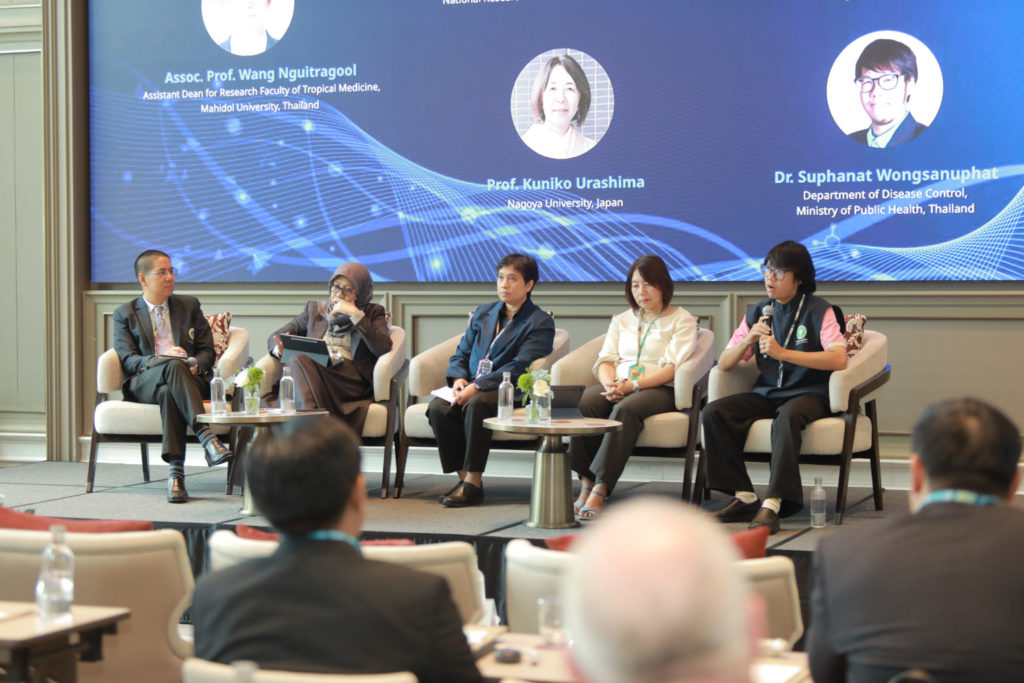
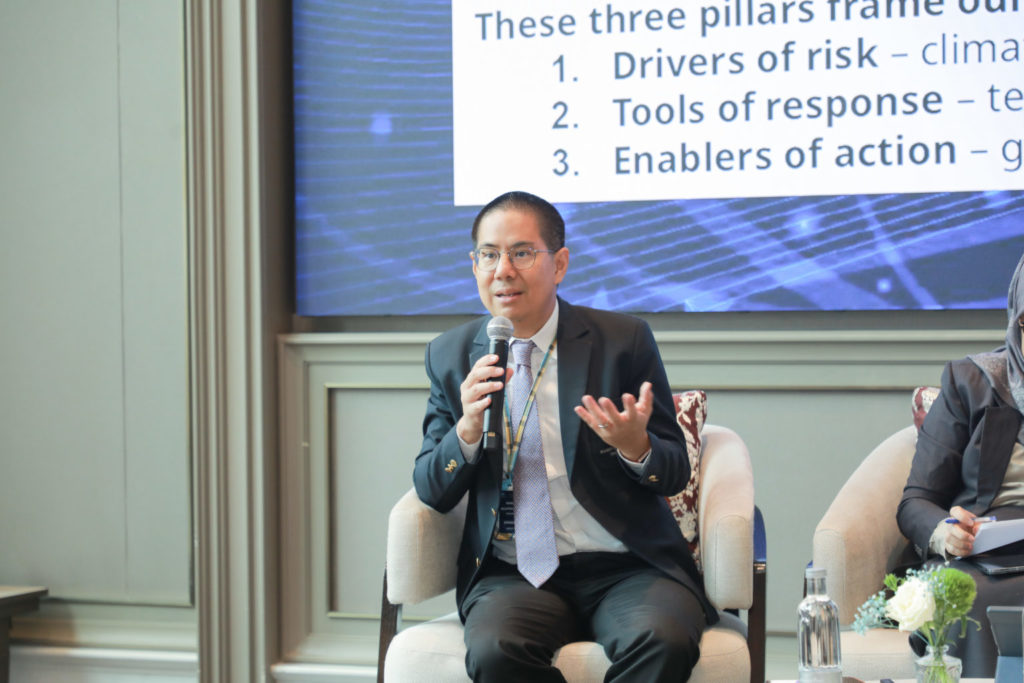
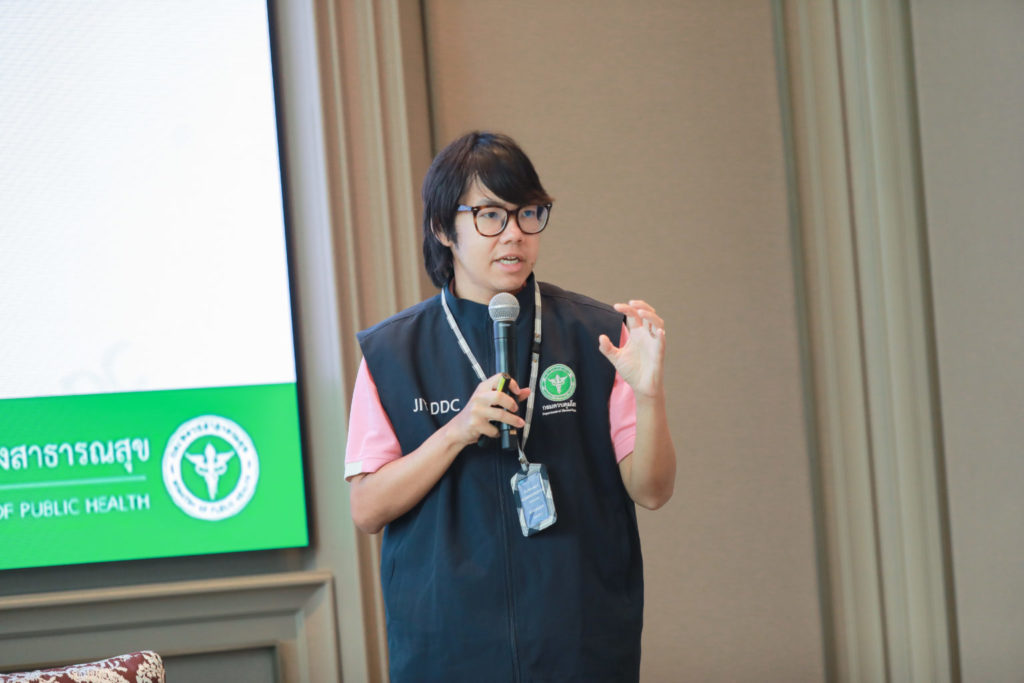
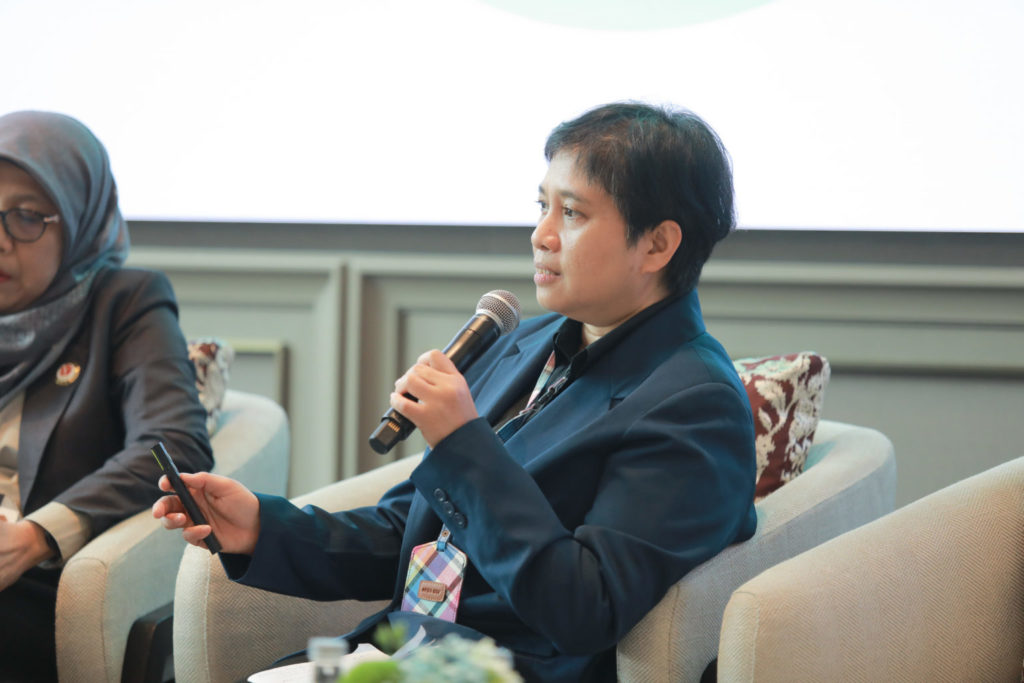
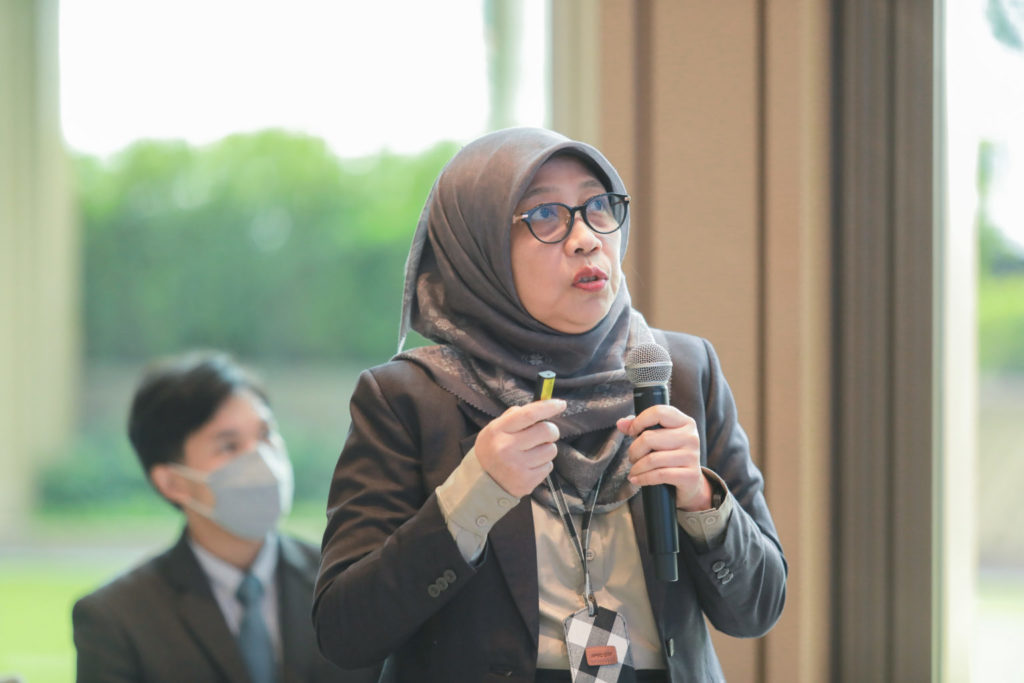
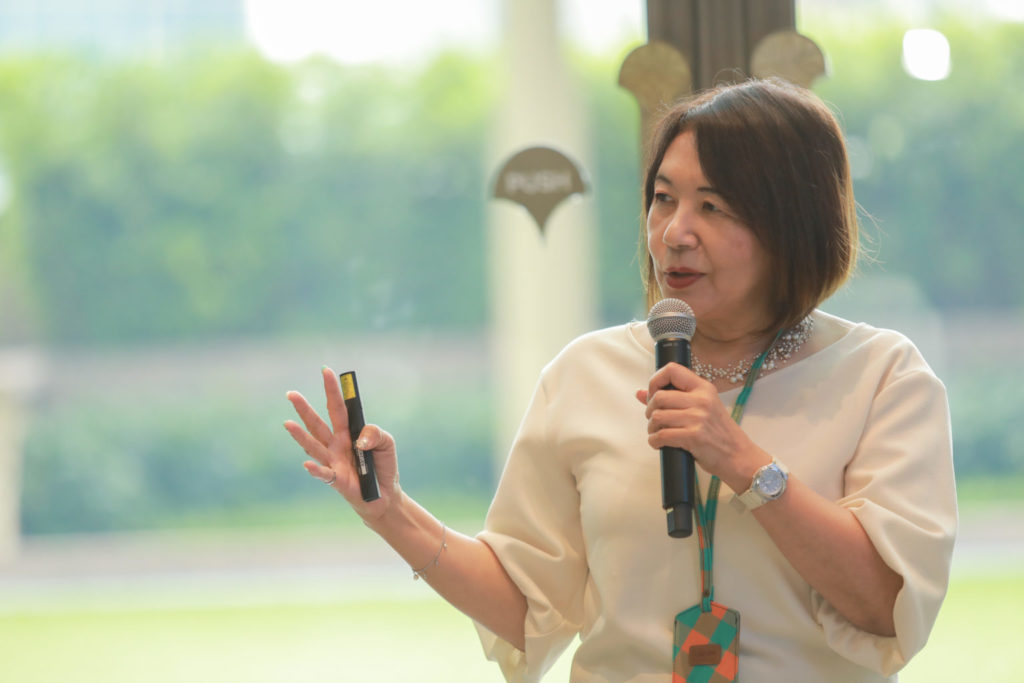
The first day featured a keynote lecture, “The Art and Science of Foresight,” by Dr. Nares Damrongchai, who introduced five foresight mindsets. A panel discussion on “Three Pillars of Emerging Infectious Disease (EID) Resilience” brought together Assoc. Prof. Dr. Wang Nguitragool from Mahidol University’s Faculty of Tropical Medicine; Prof. Ni Luh Putu Indi Dharmayanti from Indonesia’s National Research and Innovation Agency (BRIN); Asst. Prof. Dr. Duangporn Pichpol from Chiang Mai University’s Faculty of Veterinary Medicine; Dr. Suphanat Wongsanuphat from the Department of Disease Control; and Prof. Kuniko Urashima from Nagoya University. The discussion explored the impacts of climate change, the importance of One Health, the role of data science in disease surveillance, and the implications for the economy and stakeholders, along with practical applications of foresight tools. Dr. Titima Songkroh, Project Overseer from NXPO, introduced the scenario-building exercise to prepare participants for group work.
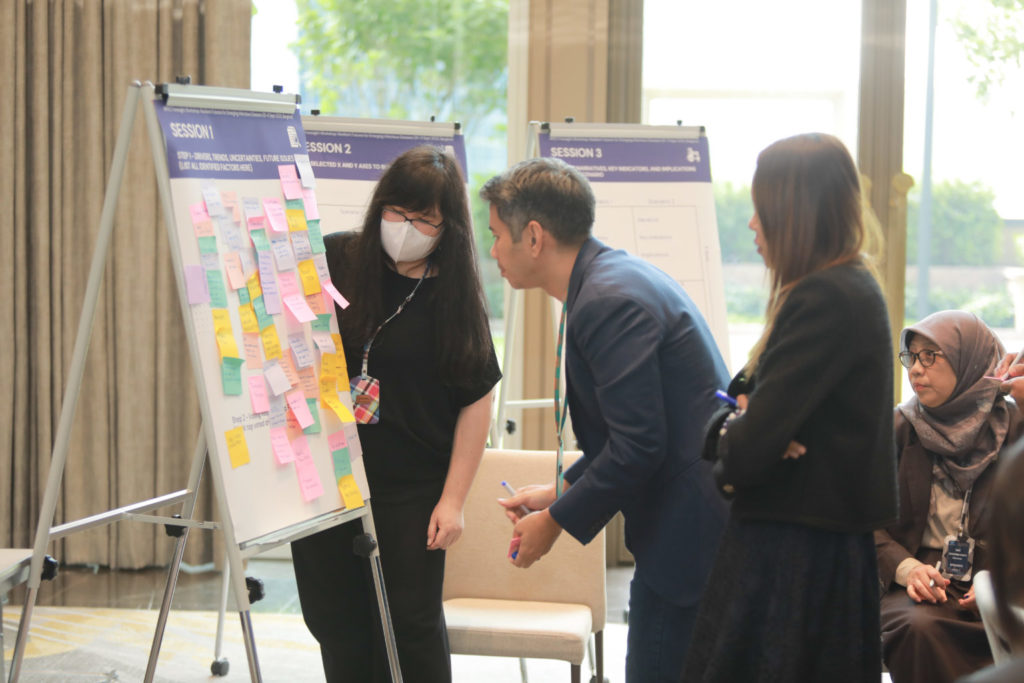
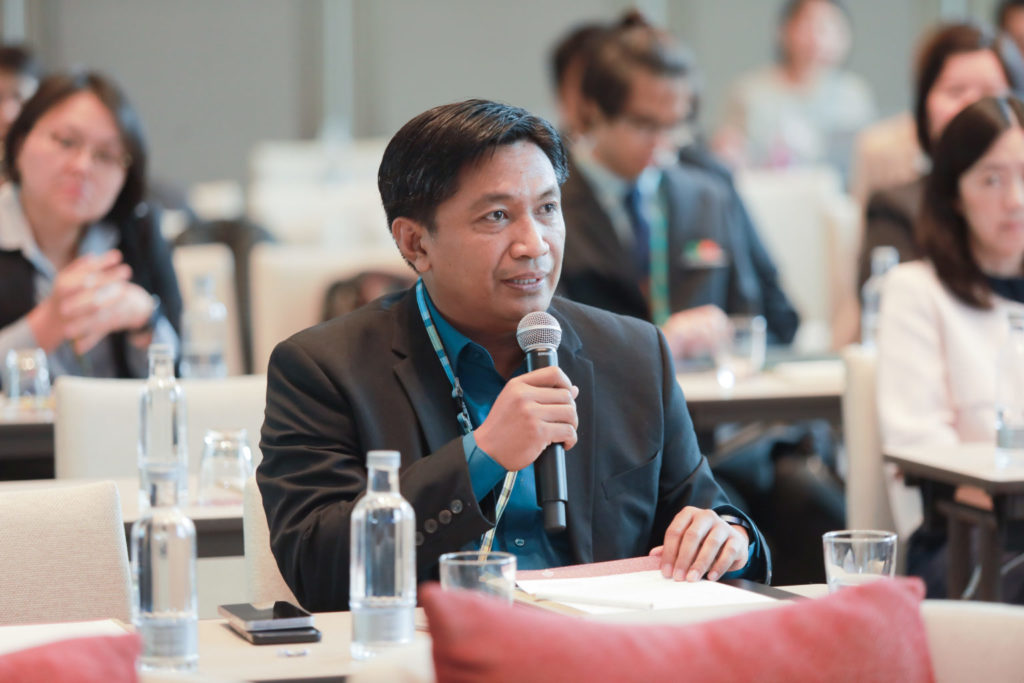
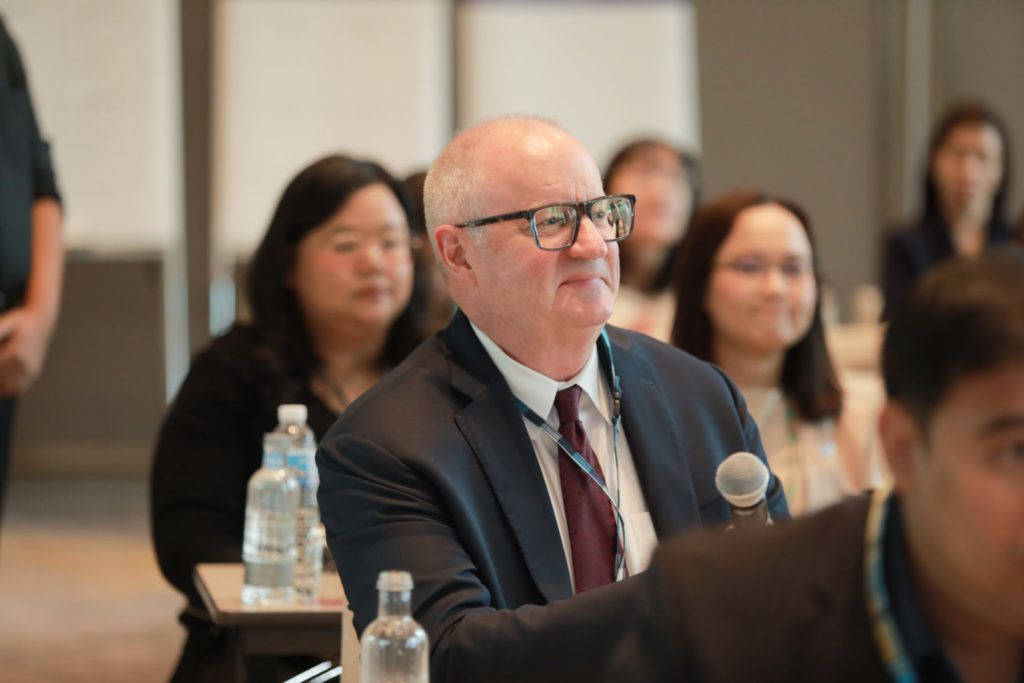
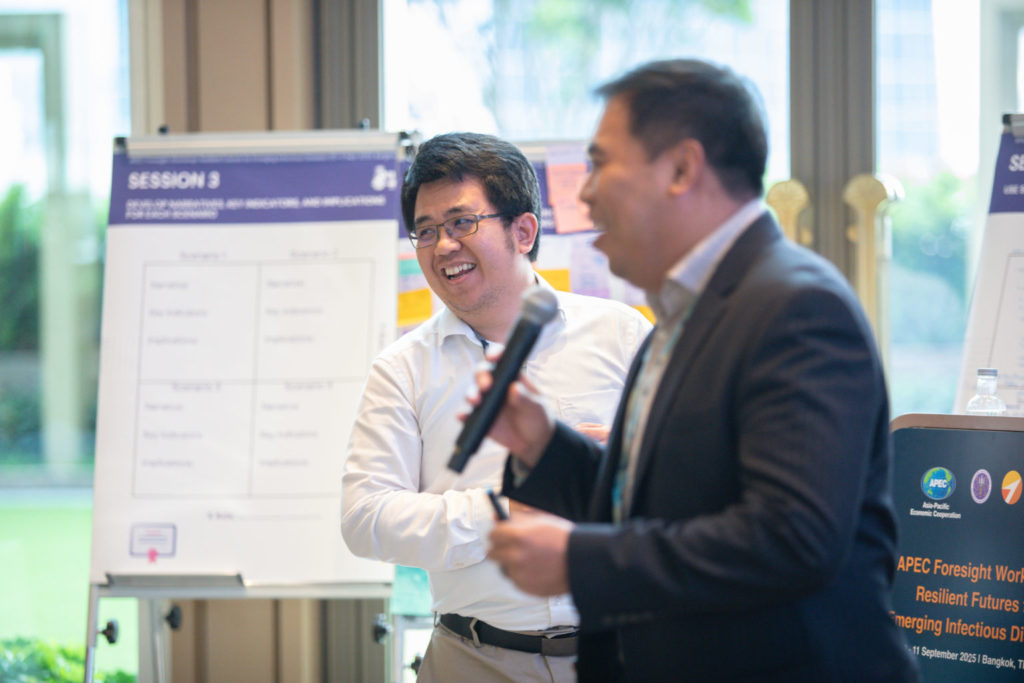
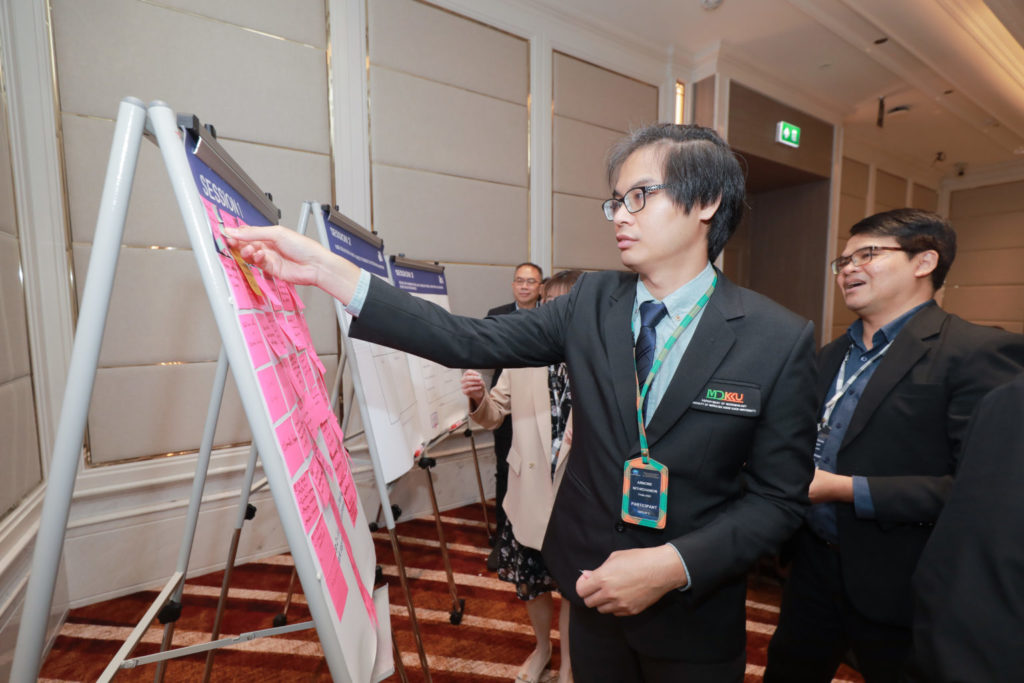
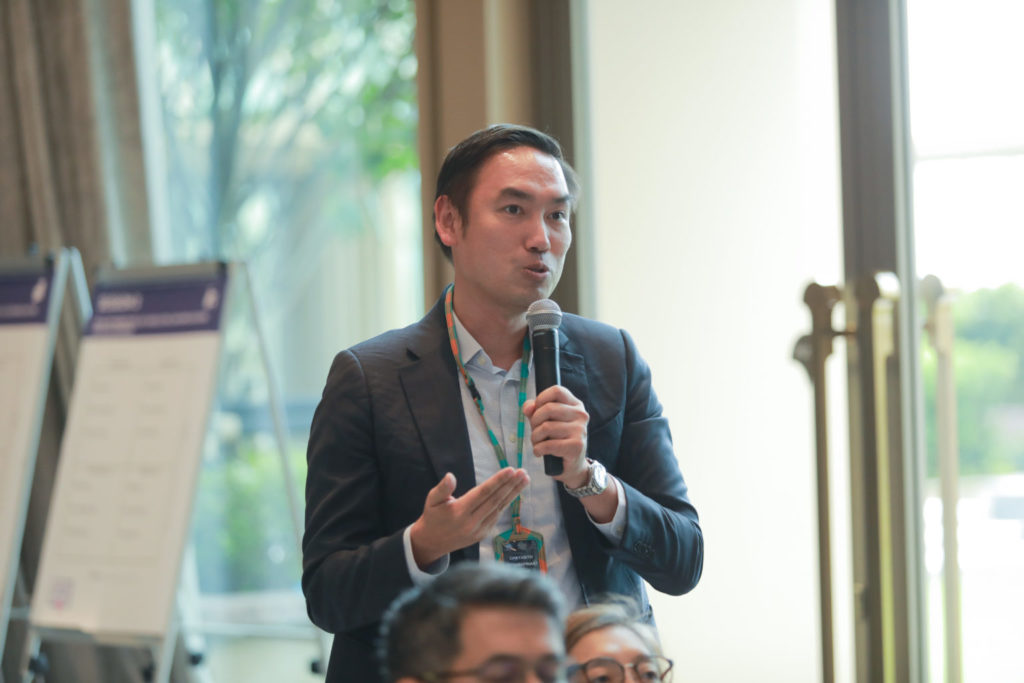
The Welcome Networking Dinner was held in the evening, with a warm greeting from Assoc. Prof. Wongkot Wongsapai, Vice President of NXPO. The dinner featured Thai cultural performances and fostered international collaboration.
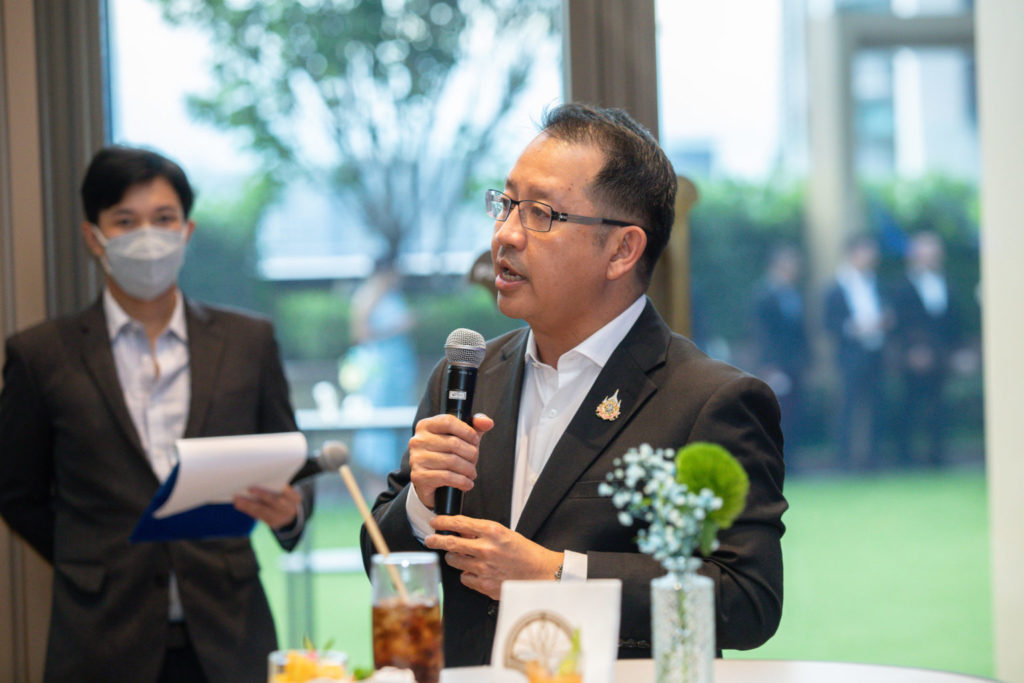
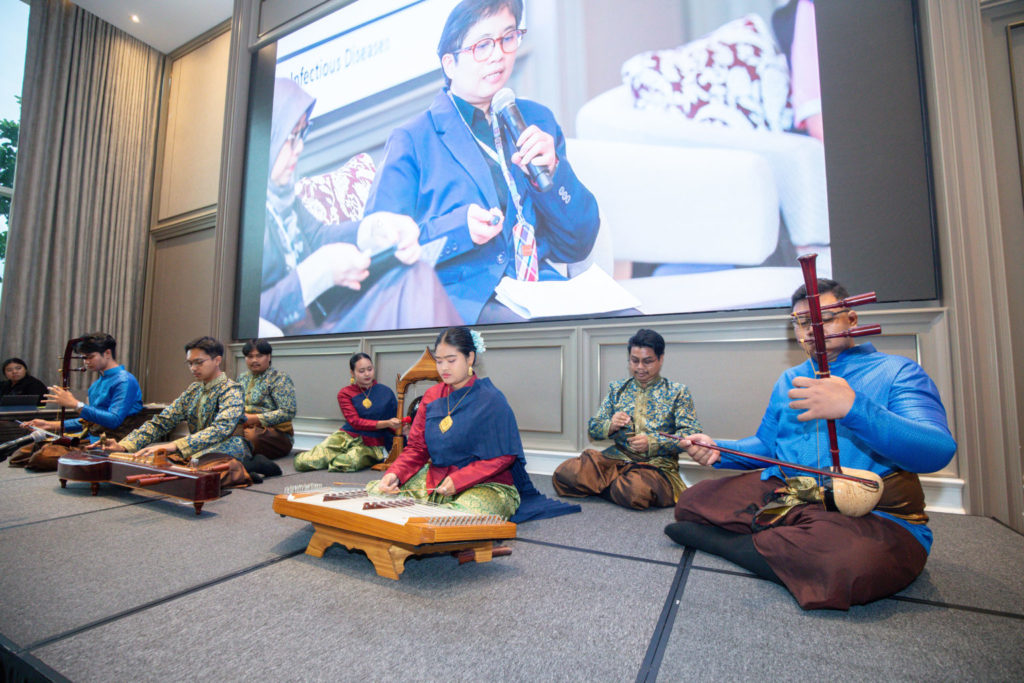
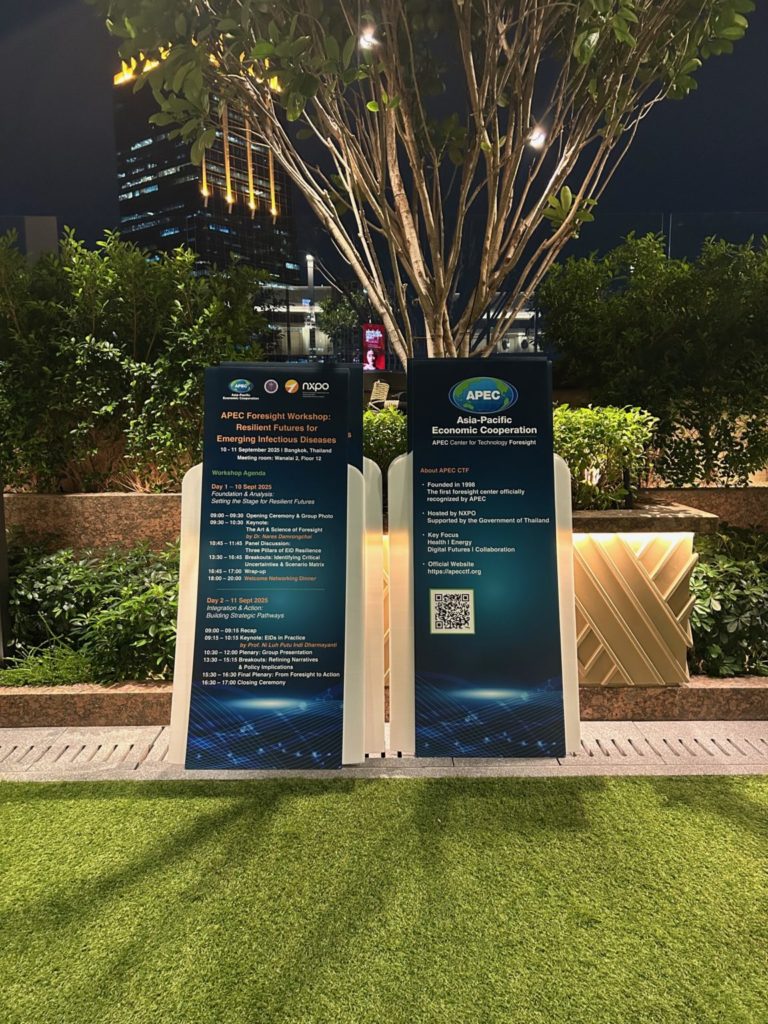
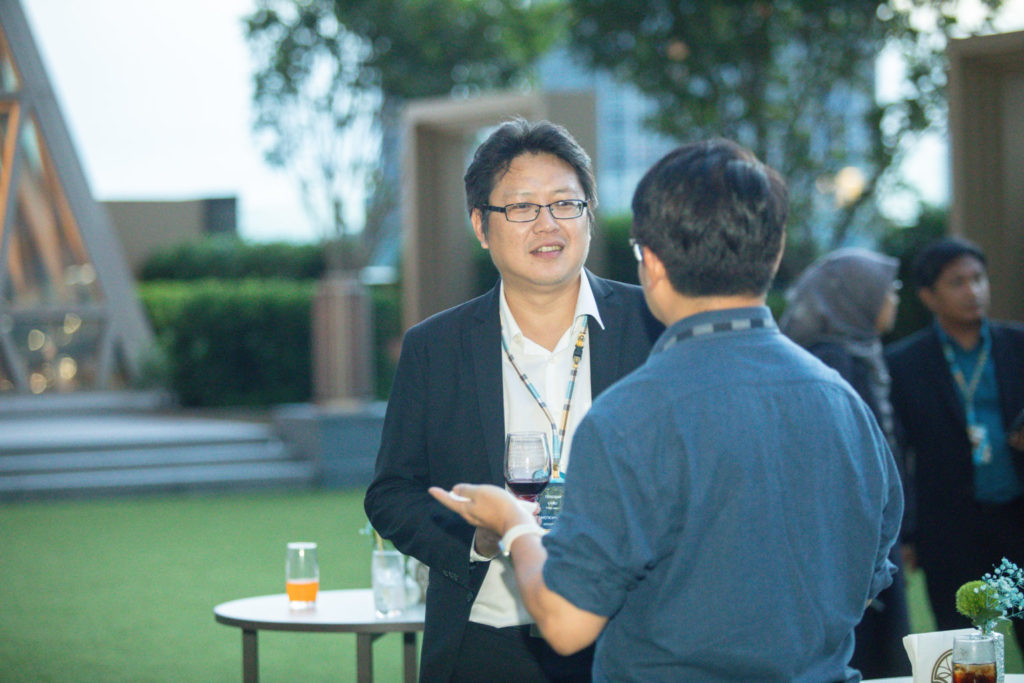
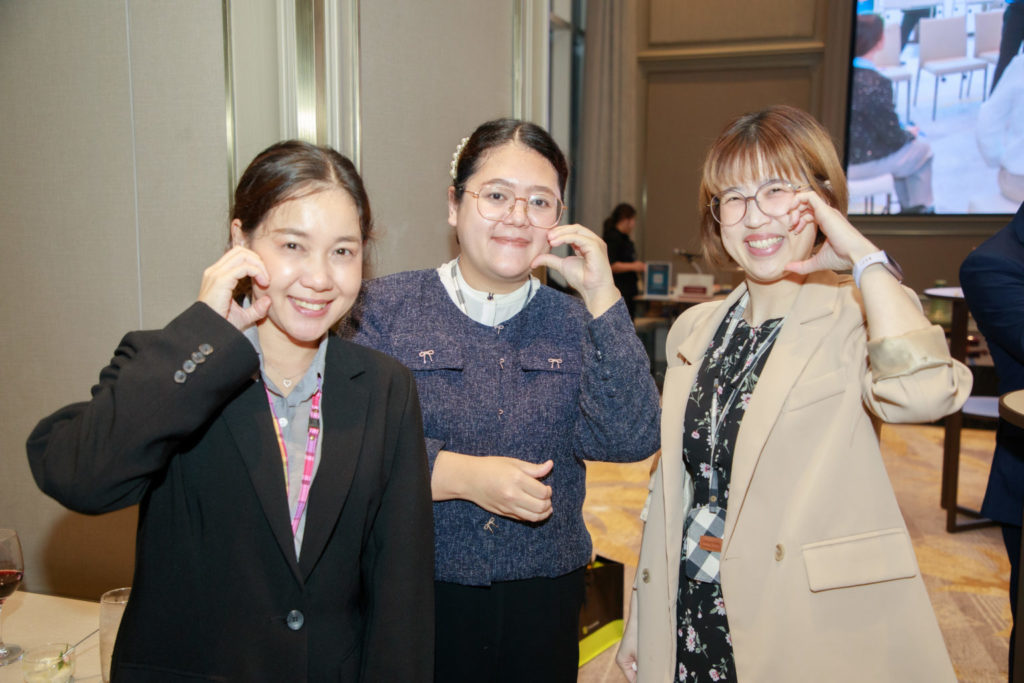
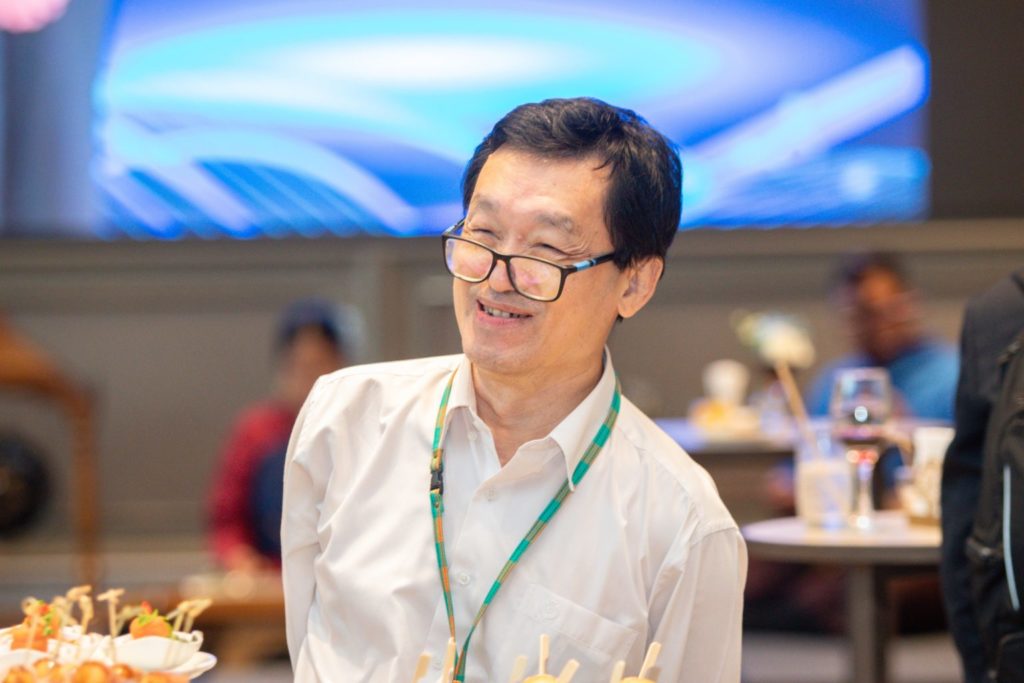
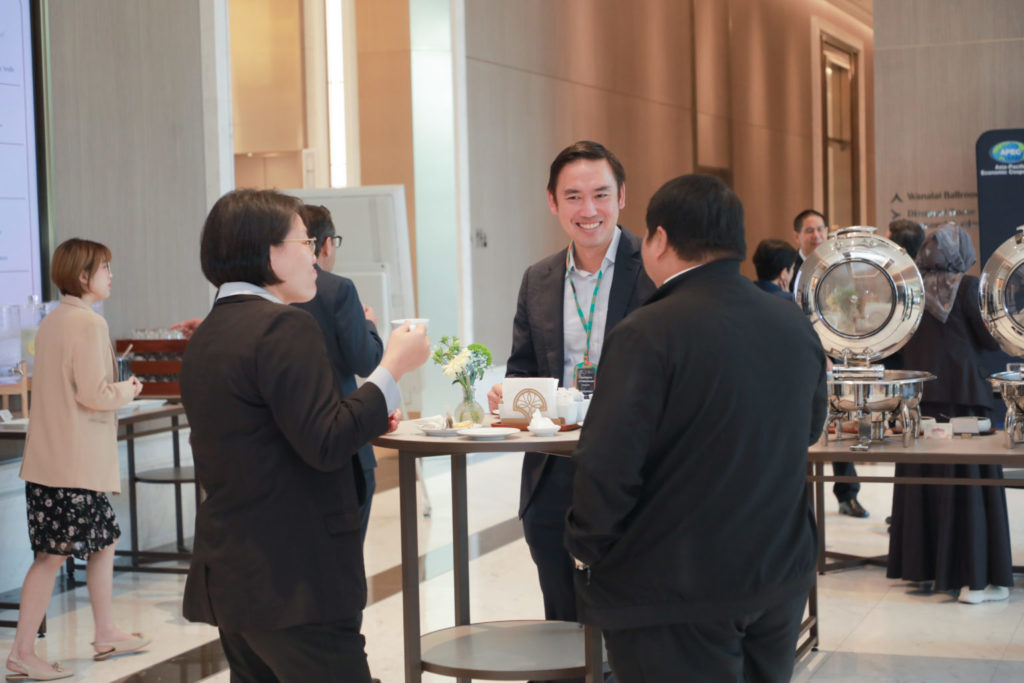
The second day began with a keynote lecture on “EIDs in Practice” by Prof. Ni Luh Putu Indi Dharmayanti, who shared Indonesia’s experiences in managing emerging and re-emerging diseases such as tuberculosis, malaria, dengue, and zoonotic infections. She underscored challenges including climate change, global travel, and antimicrobial resistance (AMR), stressing the need for a One Health approach and regional cooperation. Participants then presented the results of their scenario-building exercises.
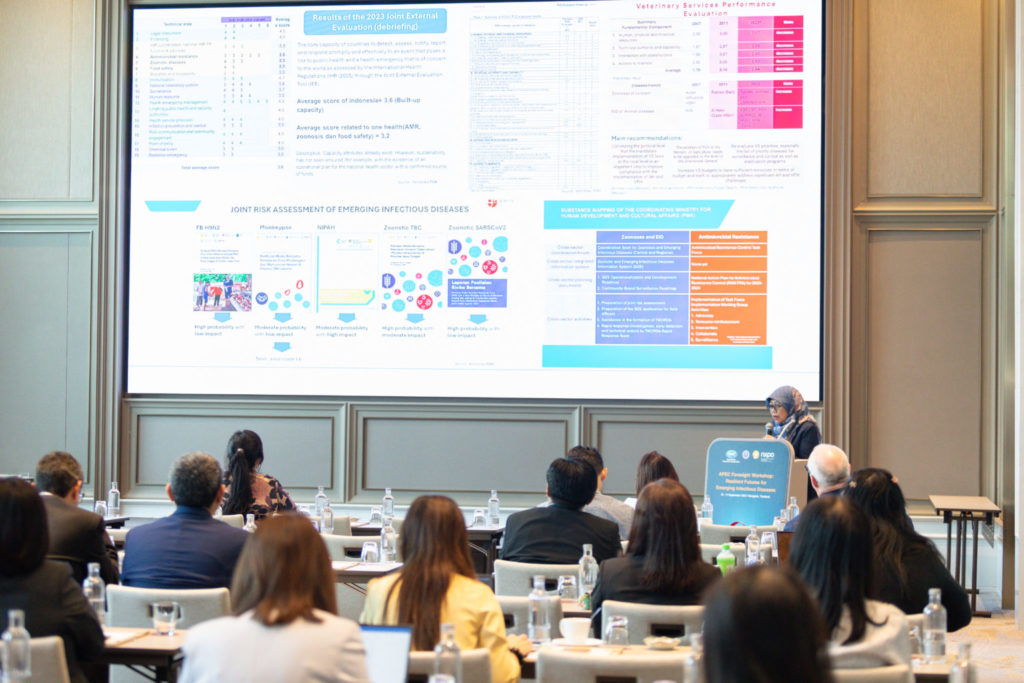
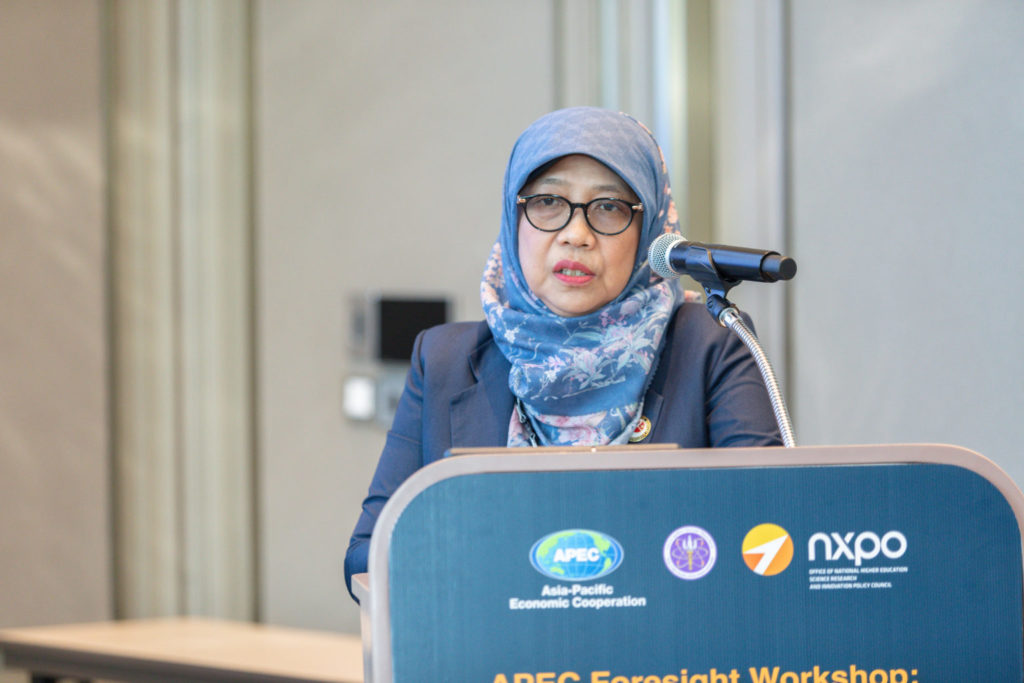
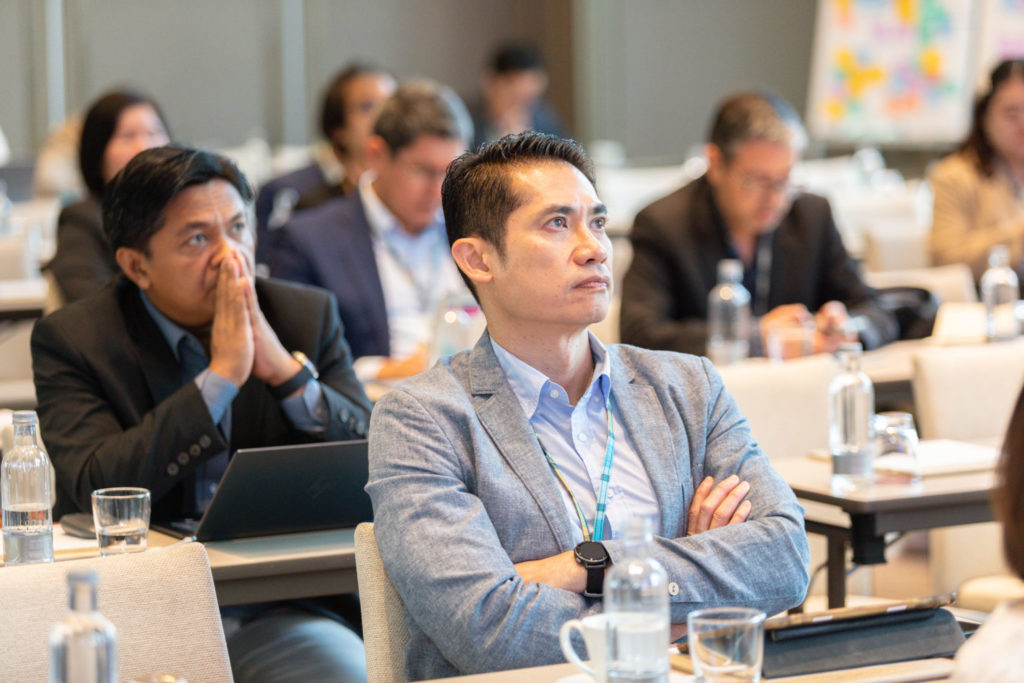
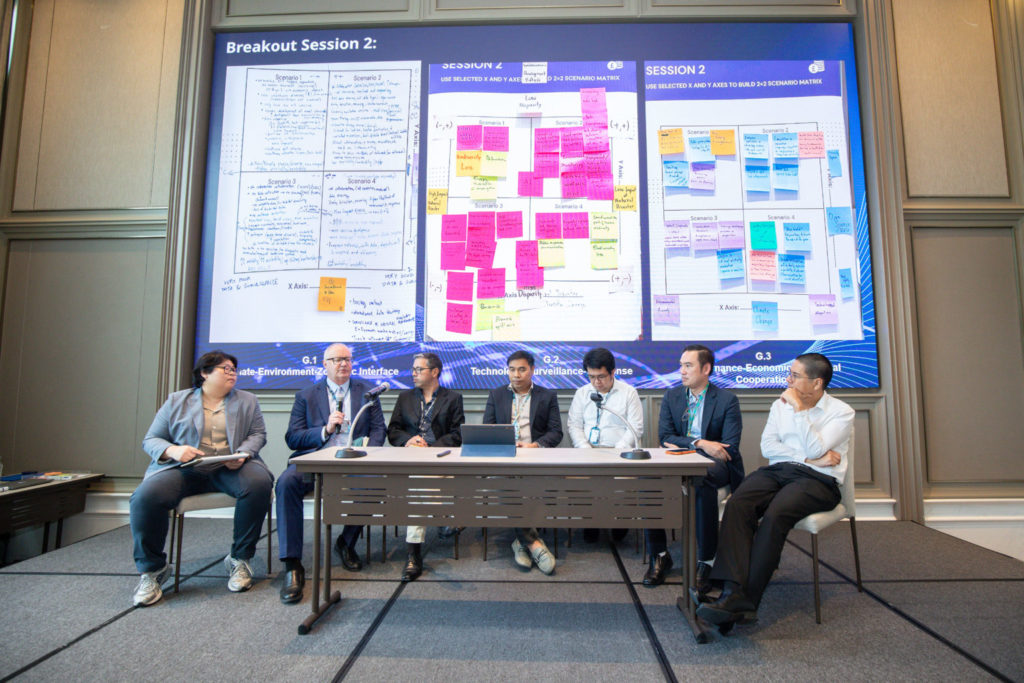
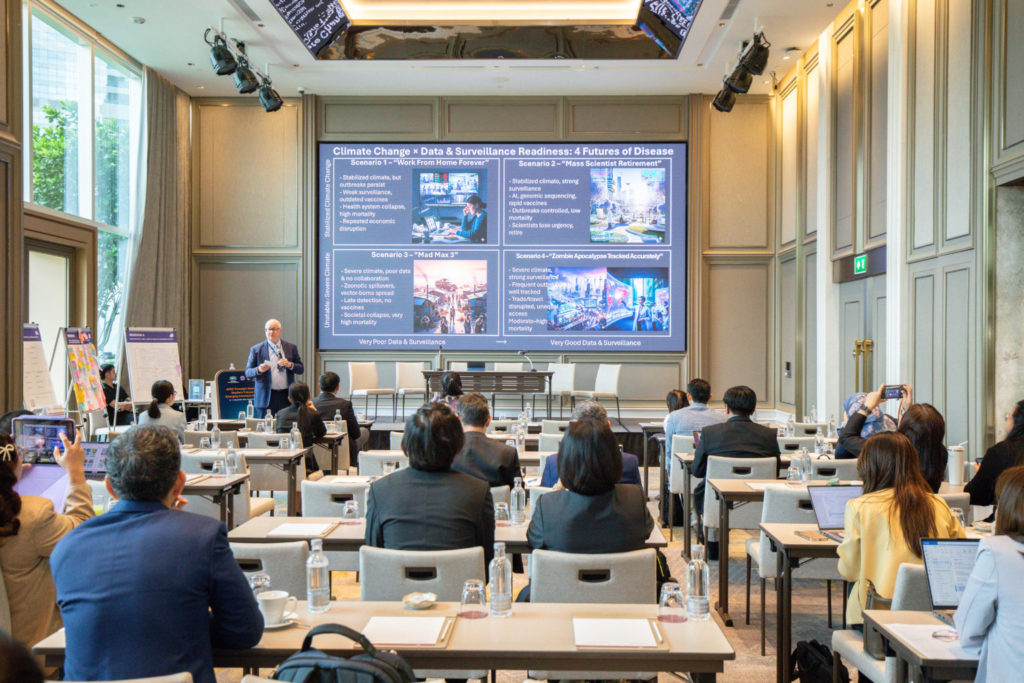

Throughout the discussions, participants agreed that the workshop reinforced the value of One Health concept and foresight to bridge science, technology, and policy. They highlighted the importance of dialogue among researchers, experts, and policymakers across sectors to foster global collaboration and strengthen regional preparedness. A recommendation was made to expand future foresight efforts to include non-communicable diseases (NCDs) to enhance overall health sustainability. In his closing remarks, Dr. Kommate Jitvanichphaibool, Senior Director of Strategic Foresight and Futures Studies at NXPO, emphasized that APEC provides a vital platform for advancing cross-border collaboration. He stressed that the workshop’s outcomes will contribute to stronger health security and support sustainable regional growth. A final report, containing outcomes from this workshop, will be prepared to guide future policy and action.
